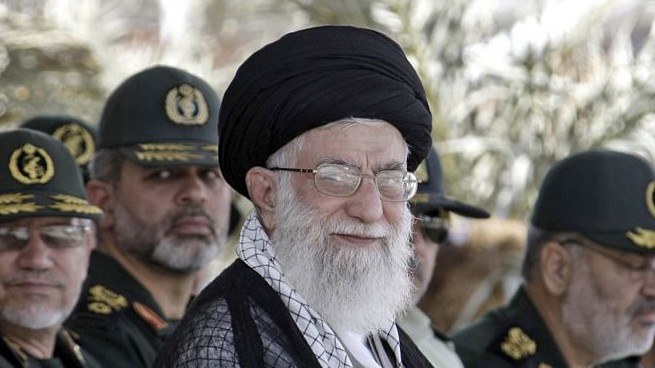IN THE MEDIA
Islamist ambitions of Iran are far more dangerous than ISIS
June 8, 2015 | Colin Rubenstein

COLIN RUBENSTEIN
THE AUSTRALIAN – JUNE 08, 2015
Should the US and its Western allies in the fight against Islamic State informally ally themselves with Iran, especially in Iraq?
Yes, Iran hates and fears Islamic State – so there is theoretically a shared interest in fighting it. However, to focus solely on this single supposed “shared-interest” approach is shortsighted, naive and counter-productive for many reasons.
The most important is that allowing Iran and its allied Shia militias to conduct the bulk of the battle in Iraq will make it harder to defeat Islamic State in the long run. Furthermore, not only is Iran our enemy in the Middle East just as much as is Islamic State, but it is ultimately the more dangerous of the two.
Iran contributed heavily toward creating the Islamic State problem in the first place.
From 2004 to 2006, the insurgency by al-Qa’ida in Iraq – which would later morph into Islamic State – had gained control over large swaths of the Sunni areas of Iraq. However, over the course of 2007, the insurgency was all but defeated. This was in large part due to the “surge” of US troops, and their change of tactics in adopting proven counter-insurgency strategies, but was also due to the Sunni “Awakening” in Anbar province. The US was able to co-opt the Sunni tribes of Anbar, which had been chafing under the religious harshness of AQI rule, and turn them against AQI by offering them support and promising that their interests would be protected by the government in Baghdad.
Sadly, Iraq’s prime minister from 2006 to last year, Nouri al-Maliki, heavily influenced by Iran, ran a partisan, Shia-leaning government that not only discriminated against and marginalised Iraq’s large Sunni minority, but at times allowed them to be attacked with impunity by Shia militia. This complete exclusion and alienation by Baghdad – with Iranian backing and support – caused many Sunni to see Islamic State as liberators when the militants expanded into Iraq’s Sunni areas last year.
It is difficult to see how Islamic State can be dislodged from western Iraq unless the Sunni tribes again begin to reject their supremacy, and cease seeing the conflict as a Sunni-Shia ethnic war, but the conduct of Iran and the Shia militia it funds and directs have made that all but impossible. The weakness of the Iraqi army has allowed the Shia militia, which in many cases are the same terrorist groups that killed so many US troops, to dominate the battle against Islamic State. In fact, Qasem Soleimani, commander of the Quds Force Division of the Iranian Revolutionary Guards, is widely regarded as the de facto ultimate arbiter of power in Iraq through those militias.
Tragically, the various Iraqi Shia militias have proven to be nearly as bloodthirsty as Islamic State. In areas where they have taken control, atrocities against the Sunni communities have become commonplace, including massacres, torture, destruction of homes and ethnic cleansing. As a result, Iraq’s Sunni population will tend to cling to, and fight for Islamic State, viewing it as their only protector.
Following the fall of the Anbar city of Ramadi to Islamic State, the Iranian-trained and commanded Shi’ites are being used to retake the town. If this happens, most Sunni inhabitants will flee to Islamic State-controlled territory, further strengthening the militants.
Yet even if Iran and its proxies did turn out to be an asset in defeating Islamic State, the outcome would still be detrimental to Iraqi and Western interests. Iran has never shied from its aim of hegemony throughout the Middle East, and co-operation with the West is definitely not a part of its master plan. When Iranian-aligned Houthi rebels recently took over Sanaa in Yemen, Iranian regime figures boasted, more or less accurately, that it was the fourth Arab capital under the control of Tehran, along with Beirut, Damascus, Baghdad. Senior Iranian leaders have asserted that Iran is an “empire” whose natural sphere of influence runs from India to Turkey.
As its proxy militias exert more domination of Iraq, Iran has no intention of relinquishing this hold to allow Iraq to become a progressive democracy friendly to the West. Tehran remains determined to turn Iraq into a Shia-controlled satellite. And Tehran is not doing this to encourage regional “stability”.
Iran is still the world’s most egregious state supporter of terrorism, still vilifies the US as the “Great Satan”, runs Holocaust-denial competitions, says Israeli destruction is “non-negotiable”, and has a horrendous internal human-rights record, while propping up Syria’s barbarous Assad regime.
While it is often alleged that Tehran is seeking nuclear weapons for “defensive” purposes, this makes little sense outside Tehran’s conspiratorial world view. There are no regional powers that militarily threaten the survival of the Iranian regime. Meanwhile, Tehran constantly argues that Islamic State is secretly a Western-supported ploy directed against its interests.
In fact, Islamic State and all other extremist Muslim groups in the region, however much they hate the Shia Islamist regime, are in fact following the pattern set by the 1979 Iranian revolution.
In all of our dealings with Iran, whether they be tacit collaboration against Islamic State, or in nuclear deals, we need to remember that the regime’s very legitimacy is based on furthering its extremist goal of establishing hegemony as widely as it can, so it can spread its fundamentalist brand of Shia Islamist “revolution”.
The last thing we should do is to throw Iraq and the rest of the Middle East to these wolves for the sake of some likely counter-productive assistance against Islamic State.
Colin Rubenstein is executive director of the Australia/Israel & Jewish Affairs Council
Tags: International Security, Iran





